Marcia Johnson: The Breakdown and the Breakthrough
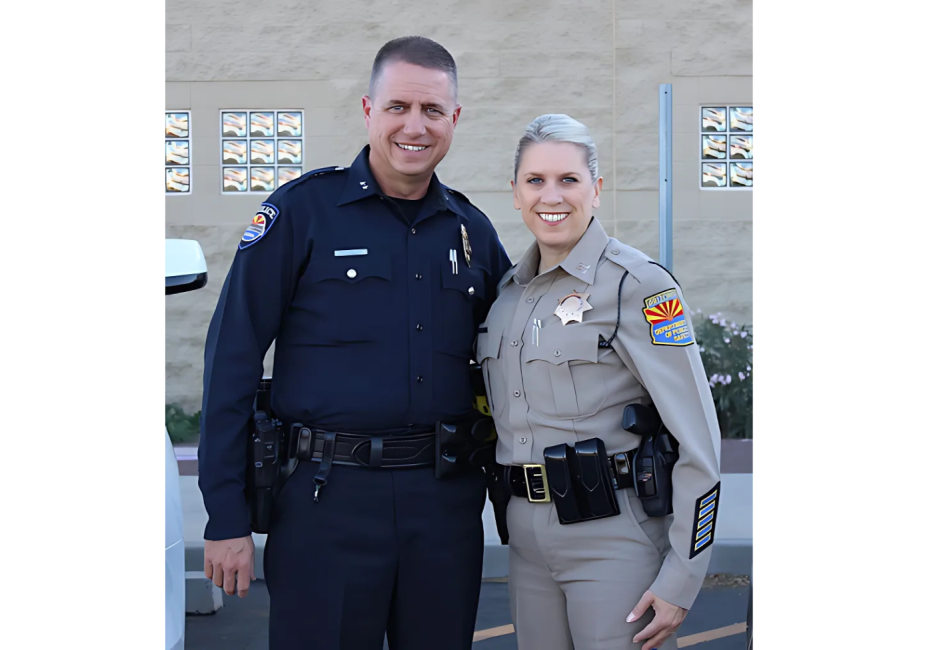

Marcia Johnson doesn’t say it lightly. It’s not a slogan or a soundbite. It’s a truth she learned through twenty-one years in law enforcement and the long journey of coming back to herself.
Born in Germany to an Air Force fighter pilot, Marcia moved to Arizona with her family as a child. A Division I track athlete and ROTC member, she seemed destined to follow in her father’s footsteps. But just before heading to Officer Training School, a diagnosis that was largely inconsequential in her day-to-day life unexpectedly derailed her plans.
“I was disqualified from joining the Air Force because of asthma,” Marcia shared. “Even though I was a Pac-10 athlete and sprinter,” she added with a laugh.
That same weekend, her apartment was damaged in an arson fire, and she learned that her college degree program would be discontinued. In a matter of days, everything she had worked for vanished.
But Marcia didn’t flinch. Instead, she rerouted her life with the same determination she brought to the track. She transferred to Arizona State, earned her degree, and on a whim, joined her brother at a law enforcement recruitment exam.
“I was mostly there to motivate him,” Marcia laughed. “But I left with the highest female score.” In 2000, she became the only female state trooper hired in Arizona that year.
Throughout her distinguished career, Marcia served as a SWAT negotiator, flight paramedic, and eventually a police captain. She became a cornerstone of Arizona’s peer support network. In a male-dominated field, she rose through the ranks not by conforming, but by redefining leadership on her terms.
But beneath the armor, the toll was mounting.
She attended funeral after funeral—her academy mate Rob, killed when a speeding car ran a red light; Bruce, her friend and fellow medic, struck by a helicopter rotor blade. She still remembers the call. She asked the dispatcher: Was it the main rotor or the tail? When the answer came—”main”—she knew Bruce was gone.
And then, there was Tyler.
It was July 25, 2018, and Marcia was on duty as nightwatch commander for all of Maricopa County—1,440 highway miles of sprawling jurisdiction. She received a call that a trooper had been hit. She assumed it was a collision.
But Tyler Edenhofer, a Navy veteran on his final night of field training, had encountered something far more dangerous. During a chaotic altercation, a suspect gained control of an unsecured firearm. Two shots were fired. One passed through another trooper’s shoulder. The other struck Tyler in the upper chest, shattered his clavicle, and tore into his heart.
Marcia rushed to the scene, issuing commands, trying to steady the chaos. When she later reached the hospital, the truth was waiting. Tyler was gone.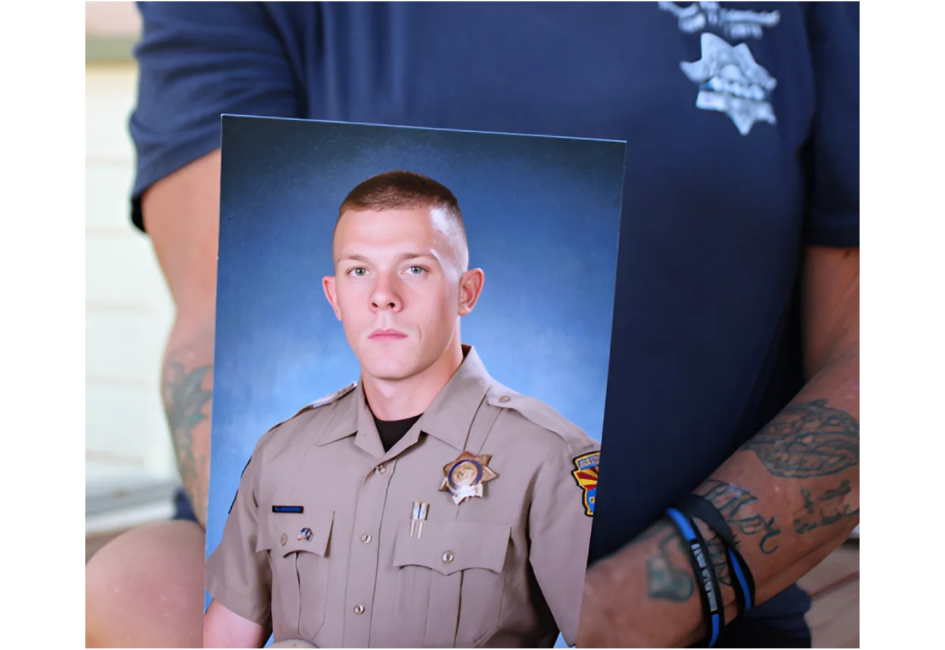
She called her superior. Then she called her husband. “I lost one,” she said, her voice cracking beneath a weight she’d never carried before. Tyler was more than a trooper. He was someone she’d signed off on. Someone she had vouched for. Someone she felt responsible for.
Marcia was excluded from the crisis management briefing. She was told she was too close. Her superiors began to question her stability. The very system she had upheld for decades now left her standing in the cold.
An independent evaluator would later confirm what she already knew: she had post-traumatic stress. And according to the state of Arizona, she could no longer serve as a police officer.
Marcia began having panic attacks. One struck on a transatlantic flight, three hours over the ocean. She gripped her husband’s hand and whispered, “Please don’t let the kids watch me die.” Her heart raced for hours, and she struggled to breathe.
That moment forced a choice. She began therapy, took leave, and tried medication. Still, she felt lost. She wasn’t suicidal, but she was reckless. Detached. Comfortable with the idea of disappearing.
That was the breaking point. And finally, the beginning.
Marcia had a friend who’d attended Warrior PATHH, a program through the Boulder Crest Foundation. She thinks it may have been her psychologist who ultimately referred her, but the details don’t matter as much as the words her husband spoke to her while she considered her next steps: “If you don’t go to Warrior PATHH, I don’t know if we’re going to make it.”
So Marcia took that step forward and walked into Warrior PATHH, armored in decades of trauma and responsibility.
At first, she was skeptical. What could this program possibly teach someone who had led peer support, trained other officers, and survived everything she had? But Warrior PATHH wasn’t about credentials. It was about connection, honesty, and confronting the pain that never fully healed.
She cried, and not over the two decades of cases or crashes—but for her kids, her family, and the pieces of herself she’d buried deep. “Actually, I ugly-cried,” Marcia clarified.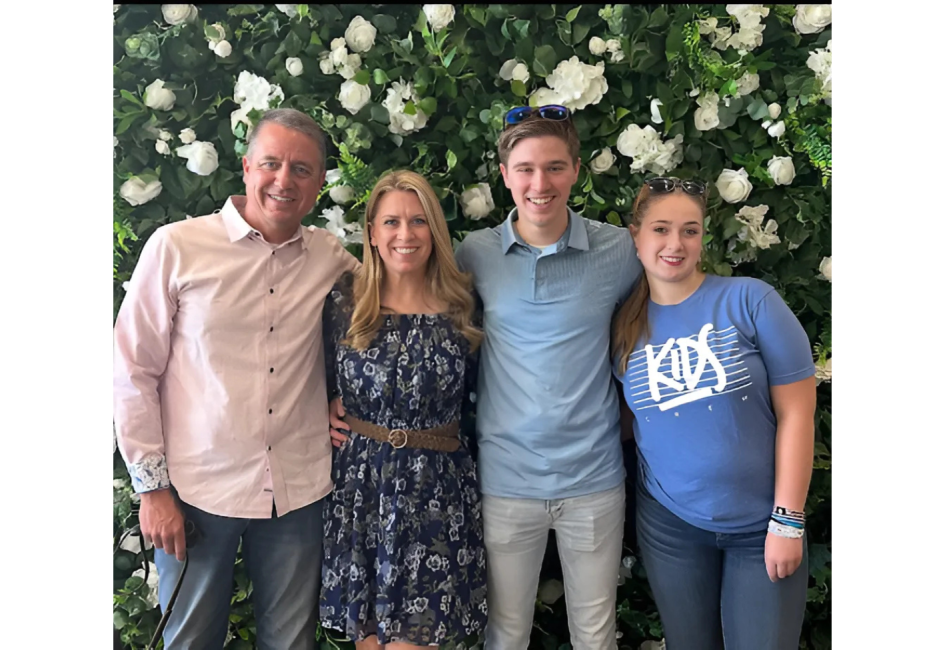
In the labyrinth at Boulder Crest, she carried a rock for Tyler, marked it with his name and badge number, and laid it to rest in the Heroes Garden. During meditation, she saw his silhouette standing there in a campaign hat. He smiled, nodded, and walked away.
“I took the biggest breath of my life,” she said. “And I let him go.” With that deep inhale, she felt the weight lift.
Today, Marcia lives in that freedom. As a Master Guide and Master Trainer with Boulder Crest’s Struggle Well program, she continues to lead from the front—only now, her mission is healing. She trains and mentors fellow first responders, guiding them through the same Posttraumatic Growth (PTG) that changed her life.
Every class, every labyrinth walk, every conversation is a chance to pay forward the grace she was given. She’s not just talking about Struggle Well—she’s living it.
Marcia also coaches high school soccer, where she instills mental wellness practices and emotional resilience in teenage boys who are learning to compete, cope, and grow. She tells them, “Struggle is a terrible thing to waste.”
Her players may not know it, but they’re absorbing tools that will carry them well beyond the field.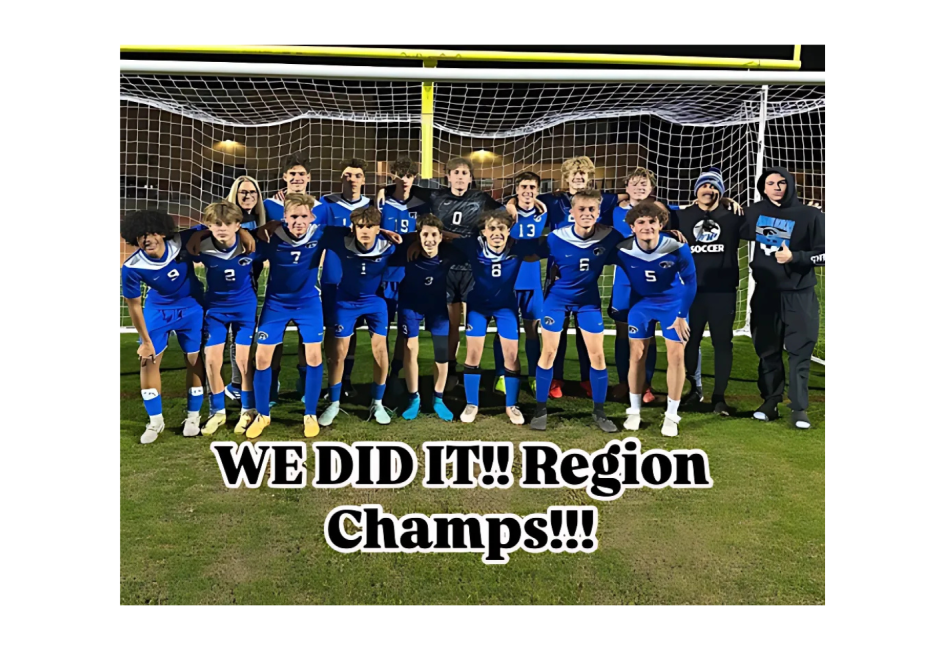
“I was a hurt person hurting people,” she said. “Now, I’m a healthy person helping people.”
Some careers end with a ceremony, a badge, and a folded flag. Marcia Johnson’s didn’t. Her service didn’t stop when she turned in her uniform; it evolved.
The most powerful chapter of her story didn’t begin with a breakdown. It began with the courage to face one. To name it and to rise from it.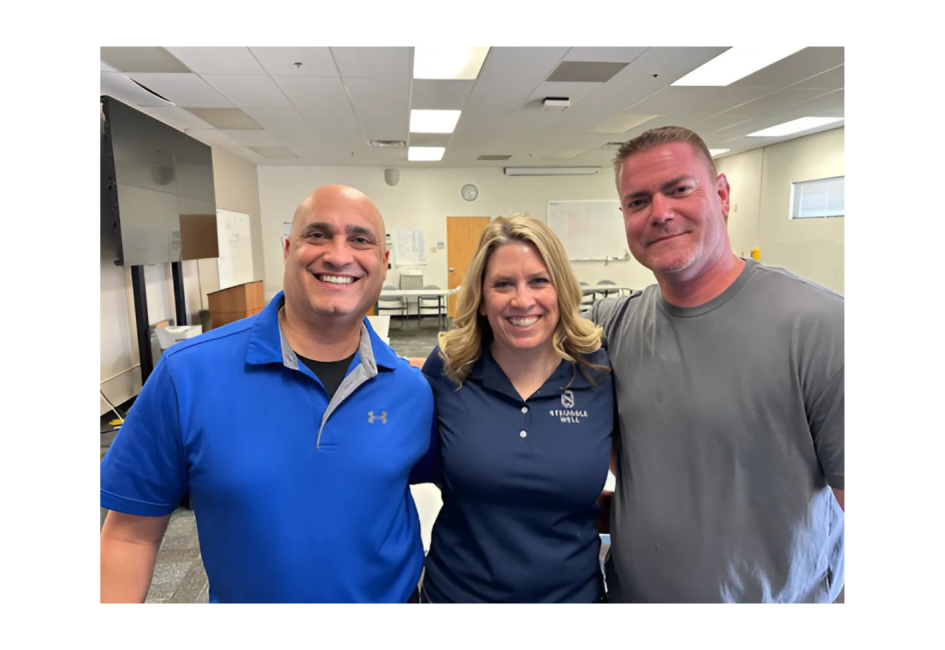
Now, Marcia walks alongside others as they navigate their own paths. She reminds them that struggle isn’t the end of the story. When we choose to Struggle Well, the journey doesn’t end with the breakdown. It begins with the breakthrough—and the power to help others reach theirs too.
“I’m still here,” she said. “And I’m still leading.”
Your support powers life-changing programs offered at no charge to veterans, military, first responders, and their families. With your help, our Warriors won't just survive — they'll thrive.

We have received your email sign-up. Please tell us more about yourself.